When PM Diefenbaker said no to nuclear missiles in 1961, Kennedy helped Lester Pearson become Canadian Prime Minister. John Boyko, author of “Cold Fire: Kennedy’s Northern Front” joins Paul Jay on theAnalysis.news.
Paul Jay
Hi, I’m Paul Jay. Welcome to theAnalysis.news. I’ll be back in just a few seconds to talk about a Canadian election that President [John F.] Kennedy more or less interfered with, and that’s a mild way of putting it. Don’t forget the donate button, subscribe button, share button, and all the buttons.
By the 1960s, U.S. investment in Canada had far outstripped British investment, and the U.S. was by far the dominating external power, at any rate. It hadn’t fully worked its way through the political structure, this economic might. Prime Minister [John] Diefenbaker got into quite a fight with President Kennedy over a few issues. Certainly, the most important was the role nuclear weapons would play in the Canadian military. In the 1962 election, President Kennedy directly and successfully made sure Diefenbaker wasn’t re-elected.
I think it’s one of the more important stories in Canadian history, modern Canadian history. It’s about a transition to American dominance that doesn’t get talked about very much. I first heard it when I was producing this television show that I used to executive produce with my partner, Ron Haggart, who was a very famous Canadian journalist. He told me the 1962 election was essentially run out of the basement of the U.S. Embassy, and this was the election that elected Lester Pearson.
So I’ve always been curious about this story. My guest today has now written a book about it, and I think it’s a very important piece of history. So without further ado, I’m going to introduce John Boyko. John Boyko has written eight books addressing history and politics, including a national bestseller, Blood and Daring: How Canada Fought the American Civil War and Forged a Nation. That was shortlisted for the Governor General’s Award. And Cold Fire: Kennedy’s Northern Front, which was shortlisted for the Dafoe Prize. Boyko is an op-ed contributor to the Globe and Mail, the Toronto Star, Macleans, and more. He writes for the Canadian Encyclopedia. His latest book is The Devil’s Trick: How Canada Fought the Vietnam War. Thanks very much for joining me, John.
John Boyko
Thank you. It’s a pleasure to be here.
Paul Jay
So we’re going to talk about your book about Kennedy and Diefenbaker. When does this dispute, a fight take place, begin between Diefenbaker and Kennedy? Kennedy certainly didn’t like Diefenbaker on a personal level, but it became more serious than that. So start from the beginning of how this story unfolds.
John Boyko
Well, it began when Diefenbaker visited John Kennedy in the White House in 1961, just shortly after the election. In February of 1961, Diefenbaker was in the Oval Office, and they were having a long discussion, him and Kennedy, about a number of issues that were affecting Canadian-American relations at the time. Canada’s involvement in the Vietnam War and Canada’s involvement in the increasingly integrated Canadian American economy that you mentioned. Another issue was NORAD, the North American Air Defense and NATO [North Atlantic Treaty Organization] that linked Canada and the United States to Britain and Europe and the degree to which Canada would contribute toward that continental defence and the defence in Europe against the Soviet Union. This is in the middle—
Paul Jay
Why don’t we dig into the Vietnam War story? In some ways, the country that’s closest to Canada in terms of its role and relationship with the United States was Australia. Australia sent troops to Vietnam, and Canada didn’t, and on the face of it, at least seemed to be distancing itself to some extent. So what’s the story there?
John Boyko
Well, my book called The Devil’s Trick: How Canada Fought the Vietnam War is precisely about that. I won’t go into long detail because I wrote an entire book about it. Still, I will tell you that in 1954, when the great powers met in Geneva in order to try to get France out of Vietnam and allow the Vietnamese people to take over the government of their own country, Canada was asked to be part of something called the International Control Commission, the ICC. While Poland represented the Communist world, India, the nonaligned world, Canada was asked to represent the Western world.
So Canada was there in 1954 with over 300 diplomats and soldiers trying to oversee a peace that really did not exist. Our diplomats were there right until the end of 1973, in fact, until 1975, when the Communists finally took over. We were also involved in the Vietnam War because we sent over 20,000 Canadians who signed up for the American military and served. Over 170 died and are on the Vietnam Memorial in Washington, DC. We were also intricately involved in supplying weaponry to the Pentagon for use in the Vietnam War, about $370 million a year, which today would be the equivalent of about $2 billion a year. So a large contribution of weaponry.
Paul Jay
The Canadians that went to Vietnam, why wasn’t that illegal? They prosecuted Canadians or at least threatened to prosecute Canadians that went to Spain to fight against fascism.
John Boyko
And that act, that law that was passed to try to stop the Canadians, was still in effect. Yet the Liberal government at the time, firstly Pearson’s Conservative government and then Pearson’s government, the Liberal government, said that they would not enforce it.
Paul Jay
So Diefenbaker cooperated to that extent with Vietnam. Canada’s role in the International Control Commission, to what extent did Diefenbaker defy Kennedy by not sending troops to Vietnam? Or did the Americans think that Canada was spying for them? In my understanding, they did quite a bit of while they were on the International Control Commission. Maybe that was more important than sending troops.
John Boyko
Canada did report to the Americans. There was a gentleman who was a diplomat named Blair Seaborn, who worked as an intermediary with President [Lyndon B.] Johnson, who sent him to meet with the North Vietnamese to try to negotiate peace. If Johnson had taken Blair Seaborn’s advice, they would have ended the Vietnam War in 1964 before the massive escalation in 1965. So we were very much there, and Kennedy knew that.
One of the things that Kennedy was doing when he met with Diefenbaker in February of 1961 was push for more foreign assistance in South Vietnam and for the direct involvement of Canadian troops. Diefenbaker was able to say that because the ICC was there and we were a part of it, we had to remain neutral and could not send troops. That was exactly the same thing that Pearson said when Johnson advocated for sending troops to Vietnam.
Paul Jay
It’s during the time that Diefenbaker was Prime Minister that there’s an estimation that if there had been a fair election in Vietnam, Ho Chi Minh would have won that election.
John Boyko
Absolutely. In fact, that came even before Diefenbaker, when Louis St. Laurent Was Prime Minister. Brigadier General Sherwood Lett was sent to run the Canadian portion of the ICC. He reported to Pearson, who was the external Affairs Minister at the time, and the Prime Minister, who reported to President [Dwight D.] Eisenhower, that if the election that was planned for July 1956 happened, Ho Chi Minh and the Communist would have won in a walk. Not because he was overwhelmingly popular in the north, which was true, and everybody knew it. He was overwhelmingly popular in the south, too. Lett, the Canadian Brigadier General, said that the election should happen anyway because if it is stopped, there will be a long and bloody war that the north, the Communists, will eventually win. He took no satisfaction in being right.
Paul Jay
So this begins, I guess, the real dispute with Diefenbaker and Kennedy, and then there’s a dispute over Canada’s relationship with Cuba.
John Boyko
Well, Canada’s relationship with Cuba has long been different than the relationship with the United States. The United States was in Cuba for a number of reasons, and it involved a lot of mafia money into the casinos and into the economy. The Canadians were in Cuba years before as well, with respect to banking interest. So we had interests in Cuba long before Fidel Castro took over in 1959, as did the Americans.
Paul Jay
So Kennedy was not very pleased with Canada’s consistence or determination to continue a trading relationship with Cuba when Kennedy was calling for sanctions.
John Boyko
That’s exactly right. Canada eventually withdrew; that is, the Canadian banks eventually withdrew a lot of their investment, but the Canadian investment remained in Cuba. This would become even more of a flashpoint when Pierre Trudeau began relationships with Cuba and with Fidel Castro. He actually went down and visited Castro. At the time, yes, even before the Cuban Missile Crisis, it was a point of contention. There were several others—
Paul Jay
Just a quick note. Trudeau often gets credit for this relationship with Cuba, but it really was Diefenbaker, wasn’t it?
John Boyko
It was Diefenbaker that allowed it to continue after the 1959 Cuban revolution.
Paul Jay
Okay, continue the story of how things unfolded with Diefenbaker and Kennedy.
John Boyko
Well, you mentioned about the— there were all of these political differences and policy disagreements, and that is true, but there was also a personal dislike between the two men. Diefenbaker, who came from a farm background, a poverty-ridden background, and picked himself up as bootstrapped, became a very successful lawyer and eventually held the highest office in the land. He hated people of the elite. The educated elite, he thought, was the worst kind of people who looked out only for themselves. What was Kennedy but a walking, talking representation of the elite that Diefenbaker had railed against throughout his entire professional and political life?
Kennedy loved people who would challenge him intellectually, but also people who would not vehemently disagree with him, especially somebody like the Prime Minister of Canada, who he believed should simply take his orders from the White House. So they ended up despising each other.
If I can just tell a little story, very short. There was a great fish that Kennedy had caught off the coast of Bermuda in his holiday, and he took Diefenbaker out to see it. He said I bet you’ve never caught anything that large, and Diefenbaker said, as a matter of fact, I caught something even bigger. So the two of them were even on a mano a mano argument about fishing. After he left, after Diefenbaker left, John Kennedy turned to his brother Robert Kennedy, who was the Attorney General and said, never leave me alone in the room with that boring son of a bitch again. So they disliked each other personally as well as all of their policy disagreements.
Paul Jay
So we’re getting into the period, into 1959-1960, Kennedy is elected. It’s the height of the Cold War in many ways. There are all kinds of claims about a missile gap, that the Soviet Union has more ICBMs
[Intercontinental ballistic missile] than the United States, which turns out to be BS, but they’re playing it up like hell in the United States. There are great tensions over Berlin. So in that context, many people were very concerned about the possibility of nuclear war. This starts to become the bone of contention between Diefenbaker and Kennedy and is the issue, I think, if I understand it correctly, where this transition really takes place; from power to Diefenbaker to Pearson to a government that’s willing to buck the United States on some critical issues, to one that doesn’t. So take us through that.
John Boyko
That is right. One of the issues that Kennedy discussed with Diefenbaker in Washington, and then Kennedy came to Ottawa for three days in May of 1961, and the issue that was the most important issue that they discussed then was that Diefenbaker had purchased Bomarc missiles. Bo was short for Boeing and Marc for the Michigan Aeronautics Research Centre. So it’s American-made missiles, and 56 of them were purchased, and they were put in North Bay, Ontario and in a small Air Force base about two hours north of Montreal.
What would happen with these missiles is when Soviet planes came over, bombers came over on their way to the United States to turn New York and Washington into Hiroshima and Nagasaki, these nuclear-tipped missiles would be fired at the planes. All they needed to do was to get close, and their nuclear missiles would explode, which would cause the nuclear weapons on the Soviet planes to explode and therefore, the United States would be saved.
Paul Jay
Okay, just one second. The original Bomarc missile purchase is not nuclear, right? That’s what the fight is about.
John Boyko
The original notion was that these would not need nuclear warheads to be effective, but then it became clear that they would need nuclear warheads to be clear. Diefenbaker said to Kennedy, both in Washington and then again in Ottawa and through many communications, not just between the two men but between their cabinet ministers and secretaries, that Diefenbaker did not want these missiles to have nuclear weapons. He didn’t want them to have nuclear weapons because that would mean nuclear weapons would be stationed in Canada. He saw it as hypocrisy that Canada was supporting nuclear missiles as nuclear missiles should be gotten rid of throughout the world. Yet, we were accepting them on Canadian soil.
He also did not trust Kennedy because he did not want the Americans from the situation room in the White House to be able to fire nuclear weapons into Canadian airspace. This would end up with a nuclear war taking place over Canadian soil, with all of the nuclear fallout landing in southern Ontario and southern Quebec. He did not want that to happen without the guarantee that the Canadian government would have the final sign-off on the use of those nuclear weapons. Kennedy could not give him those guarantees. Therefore, Diefenbaker said, I will not allow nuclear weapons to be put on Canadian soil.
Paul Jay
Let me add something to the story that I found out in the course of doing this documentary with Daniel Ellsberg. There’s a piece of this story, and I don’t know that anybody knows. I interviewed Lester Earnest. He worked on the SAGE [[Semi-Automatic Ground Environment]] radar system in ’59-’60, which was the system that was going to direct the Bomarc missiles. In the movie Doctor Strangelove, there’s this big board, and they can supposedly track all the various planes coming and going, the Soviet bombers coming in.
Earnest told me, and I saw this verified later in a study that [Robert] McNamara requisitioned. The whole SAGE radar system never worked because they hadn’t solved the problem of radar jamming. They didn’t tell anybody because they got a trillion-dollar expenditure. MIT and the various private contractors spent about a trillion dollars developing a SAGE radar system, a Bomarc missile system, so that when the computers could tell the Bomarc missiles, okay, time to fire. The whole thing was a croc. By the time Kennedy gets into this fight with Diefenbaker, Kennedy knows that, but he still wants nuclear weapons. I think it’s in your book, but it came out later that the real reason Kennedy wanted weapons in Canada was because they would furnish another target for Soviet bombers, and it would distract the bombers so they could bomb Canada.
John Boyko
That is precisely it. As a matter of fact, that was leaked during the election campaign in 1963 when Pearson, the Liberal, was saying, we need to put nuclear weapons on Bomarc missiles because they are essential to Canadian defence and American continental defence. Diefenbaker continued to say, no, these are not necessary, and we will not put nuclear weapons in Canada. The Pentagon released documents that had been kept secret.
In 1963, the Foreign Relations Committee interviewed Dean Rusk. Dean Rusk was the Secretary of State at the time, and a Senator asked him directly about the use of the Bomarc missiles. Rusk let slip in a political gaffe, yes, the only thing they are there for is to draw Soviet fire so that the Soviets will fire on them, on Canadian soil, and we will then have more time to respond before they get to the United States. I called it a political gaffe because a political gaffe is when you tell the truth that you are not supposed to tell. It’s not a mistake. It’s just you’re not supposed to tell.
Kennedy exploded, one for Rusk saying that, and two that it had been released. It was released in the middle of the campaign. Diefenbaker, of course, went on stump speech after stump speech, saying, see, I told you. By that time, it was too late, and Pearson was already winning the election.
Paul Jay
Now there was another issue of dispute too, which I learned from your book. I knew a bit about the Bomarc missiles, but I didn’t know about this part, which is about the Americans. Kennedy wanted Canadian troops in Europe to have nuclear weapons, and the fight broke out over that as well.
John Boyko
That right. This became the same bone of contention, and Diefenbaker was using the same argument. What they wanted was American-made, American-owned nuclear weapons that would be stationed in Europe, and they would be stationed with the Canadian troops that were there. If the Soviets ever breached the line and began to attack, first probably in Berlin and then the rest of Western Europe, the Canadian forces could access those American-owned weapons in order to repel that Soviet attack. Again, Diefenbaker said the same arguments. I won’t repeat them, but I do not trust you. I don’t trust that you will confirm that we, the Canadian government, get the final say on whether our troops can use nuclear weapons.
I think from a Canadian point of view, working from a Canadian who is worried about the sovereignty of his own country, one can understand Diefenbaker’s point of view. From the American point of view, you can understand Kennedy’s point of view. He needed an ally who would do his bidding and have all of the weaponry that would be necessary to put up the staunchest defence that could be raised against a Soviet attack in North America or Europe. So I understand both points of view.
Paul Jay
That’s not quite the American point of view because what I learned from Ellsberg is that the American nuclear war plan was that if a conventional fight broke out and there was any sense that the Russians were making headway, it would trigger a full-scale nuclear attack on the Soviet Union, full-scale, which would have meant the wiping out of Europe. While the Soviet Union didn’t have very many ICBMs to fire at the United States, they had lots of mid-range ballistic nuclear missiles. So these Canadian troops wouldn’t have been around very long. The idea that it meant anything militarily was a joke. They all would have been dead.
John Boyko
Exactly. As would the American troops who were there and the British, French, and the rest of them.
Paul Jay
And all the populations of those countries.
John Boyko
Given the civilians. That came from Eisenhower. That was a holdover— that was the Eisenhower defence policy. He had lived through the Second World War. He did not want to see another Second World War. So, therefore, there would be a massive retaliation with everything they had if the Soviet Union breached that line.
Paul Jay
Not just the wiping out of Europe, but the other thing I learned from Ellsberg is that they were also going to wipe out China, even though China was not going to be involved in it. They wouldn’t let China be the last man standing. They were going to wipe everybody out.
John Boyko
That’s exactly right, yeah. I wrote that in my book Cold Fire, and I had my editor say— that was one of the few things that my editor said, is that actually true? I went back and checked because I did a lot of research in Boston at the Kennedy Library. I went back to my sources, and I actually photocopied sources and sent them to him. He couldn’t believe that it was actually true because it’s Doctor Strangelove times 1,000. This is insanity, and yet that was the American policy.
Paul Jay
Well, that’s what Ellsberg says, that when he came out of seeing Doctor Strangelove, he turned to his friend and said that’s a documentary. The reason it was so accurate is that they had an Ellsberg type from Britain that had worked on the British nuclear program advising the filmmakers. So actually, it’s dark and funny as hell, but the spine of it is quite realistic.
John Boyko
You can now go on to the Kennedy library site and listen as I did to the tapes that were made because Nixon wasn’t the first President to have tapes. Kennedy had tapes in the cabinet room while the Cuban Missile Crisis was going on. The Generals, especially Curtis LeMay, the Air Force General who was advising Kennedy. If you listen to Curtis LeMay talk during the Cuban Missile Crisis for those 13 days, you can’t help but hear George C. Scott’s voice from Doctor Strangelove. The two are so close in the way they looked at the world and the advice they were giving the President.
Paul Jay
Yes, LeMay was not just urging an invasion of Cuba at that time. He was also urging a first strike against the Soviet Union.
John Boyko
This is the opportunity we needed to get the Soviet Union like we should have got them after the Second World War, and Kennedy was sitting there listening to that advice. A different President may have taken that advice, and who knows what would have spun out of control after Cuba.
Paul Jay
That’s partly because of the lie of the missile gap that the Soviets had 1000 ICBMs when in fact, they had four. That was the opportunity to hit because they figured if they wiped out the Soviet Union, they couldn’t fire back. They only had four ICBMs, which is certainly one of the motivating factors for [Nikita] Khrushchev to put missiles in Cuba. But that said, even if they were right, it was a good time, quote-unquote, “to hit the Soviet Union.” As I said, it would have been the end of Europe, but LeMay didn’t seem too concerned about that.
John Boyko
Well, it could have been the end of the planet because the Soviet Union would have responded.
Paul Jay
There’s no doubt it would have been the end of the planet because now we know of nuclear winter. Even if the Soviet Union couldn’t hit the United States, the fires that would have burnt in the Soviet Union and in Europe would have been enough to create a nuclear winter. Within a year, that would have wiped out pretty much most humans on Earth.
So, Diefenbaker, he’s not like a peacenik by any means. He’s very much a Cold-warrior himself. He’s not even really against nuclear weapons, but he is against handing over control of Canadian; what would be sort of Canadian nuclear weapons. Kennedy doesn’t like the whiff of defiance, even though, in substance, Diefenbaker’s refusal to do what Kennedy wanted wouldn’t have changed the military situation in iota. That said, Kennedy wants Diefenbaker gone. So what happens?
John Boyko
Well, Kennedy did a number of things in January of 1963 that was going to result in the fall of the Diefenbaker government. He invited Pearson, for example— well, even before that, he did a number of things to sort of undermine Diefenbaker. The American Ambassador in Ottawa was intricately involved, as you hinted at before, in feeding anti-Diefenbaker stories to the Canadian press that were then out in the newspapers. I read accounts of where some of Kennedy’s men, a guy named Ball, for example, would take great delight in inventing negative stories about Diefenbaker or twisting a story, so it put Diefenbaker in a bad light, sending to Ottawa and reading it two days later in Canadian newspapers. They took great delight in that. Kennedy knew exactly what was going on, and Kennedy was often briefed on this undermining of the Canadian government.
In June of 1962, the Canadian election was going on, and Diefenbaker was really upset about the fact that Pearson, the Liberal leader running against Diefenbaker, was brought to the White House for a meeting of all of the Nobel laureates. Pearson won the Nobel Prize in 1956 for his role in the Suez Crisis.
Paul Jay
Let me just quickly say, a lot of people think one of the reasons he won that is because he was assisting the Americans in the Suez Crisis.
John Boyko
He actually was assisting the Americans. He was taking their ideas forward. So when Pearson arrived, didn’t he go upstairs into the private chambers. Kennedy spent an hour there when all the other laureates were downstairs waiting for their dinner to begin. Then the two of them descended the stairs, and he introduced Pearson all around the room and, of course, made sure that that was front-page news in all of the Canadian papers.
Paul Jay
So just for people to get the point of this, Pearson’s leader of the opposition, he’s not the Prime Minister. You’re not supposed to treat the leader of the opposition, but they use this Nobel thing as an excuse to give prominence to Pearson. I’m just quoting your book.
John Boyko
You’re not supposed to do that at any time, but you were especially not supposed to do it in the middle of an election campaign. Kennedy knew damn well that the election campaign was going on. Something else that Kennedy did is there was a pollster and political adviser named Louis Harris that really helped Kennedy get elected. The Liberal Party contacted Louis Harris and wanted him to come up and help the Liberal Party. Harris went to Kennedy, and Kennedy said yes, go, made some suggestions, and up went Harris, under an assumed name with a fake passport and met not near the House of Commons offices but in a secret location in Ottawa and made advice to Pearson as to how to run the election.
Paul Jay
I just want to emphasize something you just said because if people don’t think there are conspiracies, this is a conspiracy. You give Louis Harris a phony name, and it has to be approved by the White House to give him a fake passport. There’s no other way to get it in those circumstances. Then he sends them up there to directly interfere in the Canadian elections. I just wanted to reinforce what you just said.
John Boyko
Louis Harris hired 500 women who ran phone lines and did polling every day, polling across the country. What Lou Harris did with this polling information is he advised Pearson on where to go, what to say, what points to hit, which points to ignore, and even to get rid of his bow tie and put on a long tie. He advised him throughout the campaign. Louis Harris was then feeding information directly back to Kennedy, who said he wanted to be briefed on the Canadian election on a daily basis. He knew exactly what was happening.
Well, it didn’t quite work out the way Kennedy wanted because while Diefenbaker lost a number of seats, he still had a minority government. So it worked that it increased the Liberal power and decreased Conservative power, but Diefenbaker was still in government. Kennedy wasn’t done yet because he was now about to overthrow the Canadian government, not just help one to get elected. Now, this was after the Cuban Missile Crisis, and we could talk about that if you want.
In January of 1963, the commander of all NATO forces, a guy named General [Lauris] Norstad, visited Ottawa. He was retiring, and he was doing a victory lap of all the NATO countries. When he arrived in Ottawa, he did a press conference at which he said everything that the Canadian Prime Minister was saying to the Canadian people about Bomarc missiles, nuclear warheads, about Canadian defence is a lie. He called the Diefenbaker government a fake government, almost Trumpian in the way that they are talking about the relationship with NATO, NORAD, and the United States. Diefenbaker responded with a speech saying, no, you’re the liar and defended his policies with the United States.
The State Department then devised a memo that Kennedy signed off on. The State Department released a long, detailed memo that went point by point through Diefenbaker’s speech, House of Commons speech. It said, this is untrue, this is untrue, this is untrue, basically calling Diefenbaker a liar for the second time. At that point, this led to great divisions in the Conservative Cabinet. One of the Cabinet Ministers, very important Cabinet Minister Douglas Harkness, the Secretary of Defence, quit. It ended up that the government fell, the first time since 1944 that they lost a non-confidence vote. Then we are into an election. Doesn’t Louis Harris come up again to help with the Canadian election and to help the Liberals? Doesn’t Ambassador [William Walton] Butterworth, the American Ambassador in Ottawa, again feed misinformation and anti-Diefenbaker notions to the Canadian press that got reprinted. Ben Bradley, later famous for Watergate Fame, with the Washington Post.
Paul Jay
Managing editor of the Post.
John Boyko
He was at that point a senior editor with News Week magazine and a good friend of John Kennedy. He and Kennedy met in the Oval Office. Two days later, there was a horrific cover story of Diefenbaker with a terrible picture of him and a long article published in News Week and the Canadian version. So all the Canadians are reading this thing that is just slamming Diefenbaker and calling him horrible things and an unintellectual man, insulting him in every way, personally and professionally and politically. At that point, Ben Bradley came back and showed the magazine to Kennedy in the White House. Kennedy said that is great. I love this. This is good. So Kennedy is behind it all the way.
At one point, Pearson is delivering a speech. He gets off the stage, and all kinds of people during the speech are yelling at him that he is pro-American and he is starting to wear this pro-American image. There was a phone call waiting for him from Kennedy backstage. Pearson said I refuse to take the call. Tell the President to lay off. This is becoming too obvious.
Paul Jay
Well, because it was obvious. The hypocrisy of Pearson is beyond belief because Pearson had been taking an anti-nuclear position until Kennedy said, okay, come on board.
John Boyko
During the campaign, in fact, in January, Pearson made a long speech in which he said he had changed his mind, that he is now pro-nuclear weapons. Not pro-nuclear weapons. Nobody’s pro-nuclear weapons, but pro-nuclear weapons being stationed with Canadian troops in Europe and with the Bomarc missiles. He, therefore, had changed his mind. Well, that was all Kennedy needed to hear to put all of this into action. We now have to not just get rid of Diefenbaker. We need this man as Prime Minister.
Paul Jay
Well, it’s hard to believe there wasn’t some kind of actual meeting with Pearson where they helped him change his mind. I mean, they knew Pearson not just from the Suez Crisis, but I have a vague memory. Didn’t Pearson work for the Rockefellers at some point?
John Boyko
I think that was [William Lyon] Mackenzie King who worked for the Rockefellers. That was William Lyon Mackenzie King.
Paul Jay
I thought there was a Pearson connection there, too. Maybe not. Anyway, they certainly knew Pearson and were in direct contact with him during this period.
John Boyko
They knew Pearson well. Kennedy had reviewed Pearson’s book with a glowing review. He spoke glowingly of Pearson for years before Pearson was even Prime Minister. When he was External Affairs Minister, he took great comfort in knowing that there was somebody who had such gravitas in Canada because he was now a world figure because of what he had done for the Suez Crisis. He had great respect, an Oxford-educated Pearson. So Harvard educated Kennedy. They spoke the same language as Diefenbaker and Kennedy never could.
Paul Jay
I wonder how long they’ve been grooming him. Is there evidence of the hand of the CIA [Central Intelligence Agency] during this period? They usually are involved in regime change policies.
John Boyko
There is no evidence that I saw of the CIA being involved. That doesn’t mean that there’s no evidence of CIA involvement. Of all the time I spent at the Kennedy library researching this, I saw no CIA involvement. There would have been awareness, obviously, because this was discussed at the cabinet table with Kennedy’s Cabinet. So there was awareness, but whether there was direct involvement, I don’t know.
The CIA, like you say, was quite adept at overthrowing governments that the regime in Washington didn’t like. Canada was now having its government overthrown, and one put in that the President wanted. It wouldn’t have been news to the CIA; it would have been one more.
Paul Jay
It wasn’t troops on the border, but it’s interesting how self-righteous and outraged the Americans get about Russia and Ukraine. This is more or less the same situation. They wanted this out-and-out pro-American government in Canada and made it happen. The Canadian media, on the whole, wound up being quite pro-American on this. Is that right?
John Boyko
Well, there are a number of reasons that I found when I was doing my research. One of the things that the Americans were very good at was selling Kennedy as— it was before the Beatles, but he was like the Beatles. He was like a rock star. He had the looks. He had the name. He had the smile, the charisma, the beautiful wife. He had all of that, and we had John Diefenbaker. So when John Diefenbaker was put up against John Kennedy, many American journalists just fell into line with the Kennedy mystique and charisma, and so did Canadian journalists. The Canadian journalists were looking at Diefenbaker in a way that was almost pro-Pearson, to begin with. Then there was a rumour and a leak that came out that while Kennedy was in Ottawa, he had a position paper in his hand that was written by one of his aides, a guy named Rosto, that said there are six things that we want you to push the Canadians to do: join the Organization of American States, the nuclear weapons, and a number of things.
Paul Jay
Hey, hang on. That’s the big one. I remember this. Sorry, I should have picked up on it. This is a really interesting thing I learned from your book. This OAS [Organization of American States] thing became a real fight.
John Boyko
Absolutely. Kennedy wanted Canada to join the OAS, the Organization of American States. All of the States in the Western Hemisphere joining together as a— not military pertinent, it basically was a military, but as an economic alliance. Kennedy wanted one more English-speaking Western voice down there with all of these Spanish-speaking people, many of whom were still looking at the Soviet Union, not yet China, but the Soviet Union, and thinking maybe they have some support that we could use. So he wanted Canada’s voice on that Council, and Diefenbaker said no. One, because he would know that he would end up in a fight between Cuba and the United States. He didn’t want to put himself in that position. He knew that he could not simply toe the line for the Americans and, therefore, would not join the OAS.
Paul Jay
That’s really interesting, because also just learning from your book, he was arguing that Canada would have a much better position, even vis-à-vis trade with Latin America, if Canada had its own direct relationship, that in OAS, Canada would inevitably become a second banana to the Americans.
John Boyko
Which is exactly what Kennedy wanted. Again, Diefenbaker said no, to protect Canadian sovereignty and our ability to maneuver. We needed to stay out of the OAS. That was only one of the six things that were on this talking page, and the word was, push. Push the Canadians to do this. Push the Canadians to do that. Push the Canadians. What happened was Kennedy, no doubt, inadvertently dropped the paper or left it behind. So when Kennedy left, and Diefenbaker waved him goodbye and went back to his office, there was this piece of paper there. He picked it up, and there it was. Pushed the Canadians to do this, push them to do that. Diefenbaker read it and, with a blue pen, underlined the word push. Each time, almost ripping through the paper. You could just see the anger. I saw this piece of paper in the Diefenbaker papers in Saskatoon during my research, and there it was.
Well, during the campaign, Peter Truman, a Canadian journalist, didn’t release a leaked document, but the news that on the border, Kennedy had written SOB beside Diefenbaker’s name. So this goes back to Kennedy as a rockstar. So many Canadians were enamoured with the charisma and movie star, rock star, of John Kennedy, and he thinks our Prime Minister is a son of a bitch, and there it was out there.
Paul Jay
Now, the owners of the newspapers, who are in the upper echelons of Canadian elites, are part of what is now the majority section of the Canadian elites that totally want to ride an American gravy train. They don’t want to piss Kennedy off. It’s not just the journalists who get enamoured with Kennedy’s personality, which they did. He certainly had an enamouring personality. The elites themselves wanted an end to this defiance by Diefenbaker. They wanted a pro-American Prime Minister.
John Boyko
And you’re talking about that elite, but also the business elite as well.
Paul Jay
That’s what I’m talking about, yeah.
John Boyko
You’re talking about the business elite. I thought you were talking about the media elite.
Paul Jay
Yeah, kind of the same. But go ahead.
John Boyko
And the Canadian voters. So now you’ve got this coalition of Canadians who say we really respect what John Kennedy says. John Kennedy thinks my Prime Minister is a liar and personally thinks he’s the son of a bitch. So that came out two days before Canadians went to the polls. Ben Bradley, by the way, met with Kennedy and said, did you write SOB on that memo? And Kennedy said, “no, I didn’t know he was a son of a bitch at that time.”
Paul Jay
Now, when I was a kid, I guess I was about eleven or something or twelve. I guess it’s the 1962 or ’63 elections. I go to Maple Leaf Gardens, and my parents take me there to hear Tommy Douglas, the head of the CCF [Co-operative Commonwealth Federation], speak. The Maple Leaf Gardens was packed, which means about 20 thousand, 15-20 thousand people. The theme of the speech is no Bomarc missiles. There was a lot of public opinion against Bomarc missiles, but it’s kind of ironic, I think, and then you tell me if I have the numbers right. If Douglas hadn’t weakened the anti-bomarc vote, vis-à-vis Diefenbaker, maybe Pearson wouldn’t have won. In some ways, CCF and Douglas gave Pearson the victory, and they played that role the other way a few times, too.
John Boyko
That is absolutely true. There were also some other small political parties there. Now we are to the reality of Canadian politics because if we only had two parties like the Americans, a number of Canadian elections would be different. The vote-splitting would not happen, and the strategic voting wouldn’t happen. That election of 1963 was one of them in which, yeah, Tommy Douglas siphoned a lot of votes away. The anti-Bomarc, anti-nuclear votes that would have gone to Diefenbaker.
Paul Jay
Okay, so Diefenbaker is overthrown. I don’t know if we can call it a coup, but it’s not too far from a coup. I think in the headline, I’ll call it a coup.
John Boyko
It’s as close as we can come to a coup without being a coup. Without American tanks on the street, it’s as close as we can come to a coup.
Paul Jay
Pearson becomes Prime Minister. On that list of things to push Canada, Diefenbaker, if I remember correctly from the book, said no to all of them. Did Pearson then say yes?
John Boyko
Pearson said yes to the most important ones. The most important one was that he allowed the nuclear weapons to come into Canada and to be placed with the Bomarc missiles. He allowed the nuclear weapons to go to Europe. He allowed that to happen. There were some other minor things, but that is the major thing. With respect to the OAS, no, Pearson for the same reason that Diefenbaker would not join the OAS. For the same reason as Diefenbaker, he wouldn’t cut off relationships with Cuba. For the same reason as Diefenbaker, he would not commit troops to Vietnam. He continued to allow, just like Diefenbaker had the massive amount of military material to be purchased by the Americans and sent to Vietnam, but no direct Canadian troops in Vietnam.
Paul Jay
But it’s during Pearson’s years but also Trudeau’s when Canada really gets more actively spying on behalf of the U.S. on the ICC.
John Boyko
Yeah, the ICC was doing things and again, not so much Cold Fire, but in the book The Devil’s Trick: How Canada Fought the Vietnam War, I go into the amount of spying that was done. There were some ICC, International Control Commission officers, and diplomats that were there that spoke and said later, “the things that we were asked to do on behalf of the Americans I am ashamed of.” So, for example, at one point, there was going to be a massive influx of— this is before when Kennedy was still President, before the big influx of Americans in 1965. There were going to be 1,500 new advisors put in, and there was going to be a massive amount of helicopters and armoured vehicles placed in. The ICC’s job was to say, no, that is not allowed. So what the Canadian ICC coordinator said to the Americans was, could you please space that out over two months so that it doesn’t arrive all at the same time? So were the Canadians in there doing the American’s bidding? Absolutely.
Paul Jay
Just to close the loop on this. When did Canada join the OAS?
John Boyko
Brian Mulroney’s government joined the OAS in the 1980s. It was a long time after all of this.
Paul Jay
A government and person, even more, subservient to the American than Pearson.
John Boyko
So Ronald Reagan asked that Canada join the OAS and Brian Mulroney said yes.
Paul Jay
I think Mulroney would have said yes to just about anything.
John Boyko
That’s another book.
Paul Jay
Yeah, maybe that’s the next one. Alright, listen, this is really interesting. We’ll do the Vietnam one. You tell me when you’re ready. Thanks very much for joining us.
John Boyko
Thanks so much. I’m happy to speak with you again anytime. I’ve enjoyed this.
Paul Jay
Thank you for joining us on theAnalysis.news. Please don’t forget to donate to subscribe to share. I just want to reinforce this in terms of the interview we just completed. This subservience of Canadian foreign policy, Canadian military policy, and NATO, it continues in spades today. So Kennedy’s coup against Canada really set the tone for where we’re living now. Thanks again, John.
John Boyko
Thank you very much, pleasure.
Paul Jay
And thank you for joining us on theAnalysis.news.
Podcast: Play in new window | Download | Embed
Subscribe Apple Podcasts | Spotify | Android | iHeartRadio | Blubrry | TuneIn | Deezer | RSS
Never miss another story
Subscribe to theAnalysis.news – Newsletter
John Boyko is the author of eight books, including Cold Fire: Kennedy’s Northern Front, which was shortlisted for the Dafoe Literary Award for non-fiction, and Blood and Daring: How Canada Fought the American Civil War and Forged a Nation, which was shortlisted for a Governor General’s award for its English-to-French translation. Boyko is an op. ed. contributor to the Globe and Mail, Calgary Herald, Ottawa Citizen, Montreal Gazette, Maclean’s and more. He also writes entries for the Canadian Encyclopedia.
He has addressed audiences across Canada and appeared on radio and television discussing his books and various historical and current political issues. The Globe and Mail have called Boyko “a distinguished scholar of Canadian political history” and the Winnipeg Free Press has praised his “encyclopedic knowledge of Canadian history.”

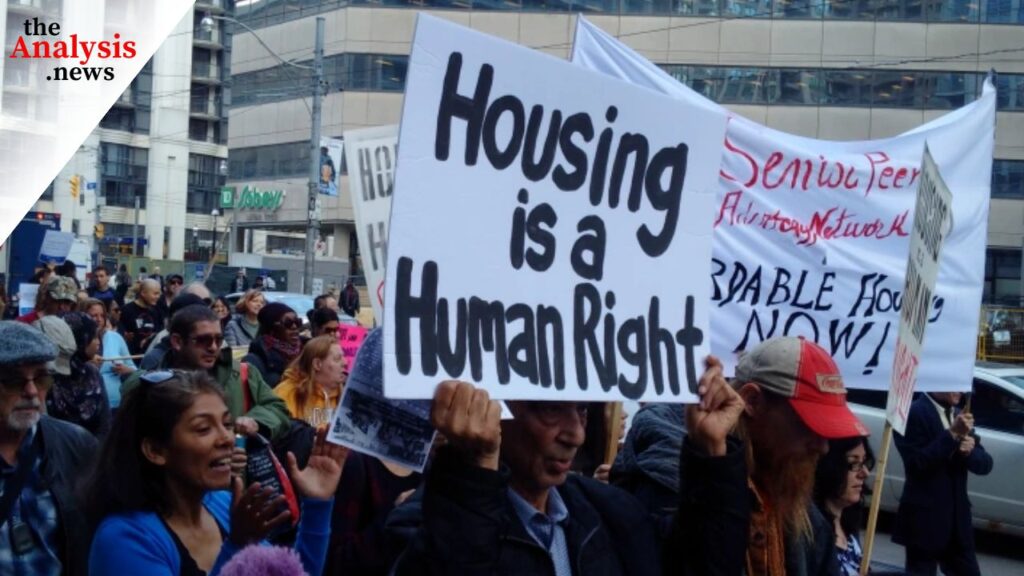
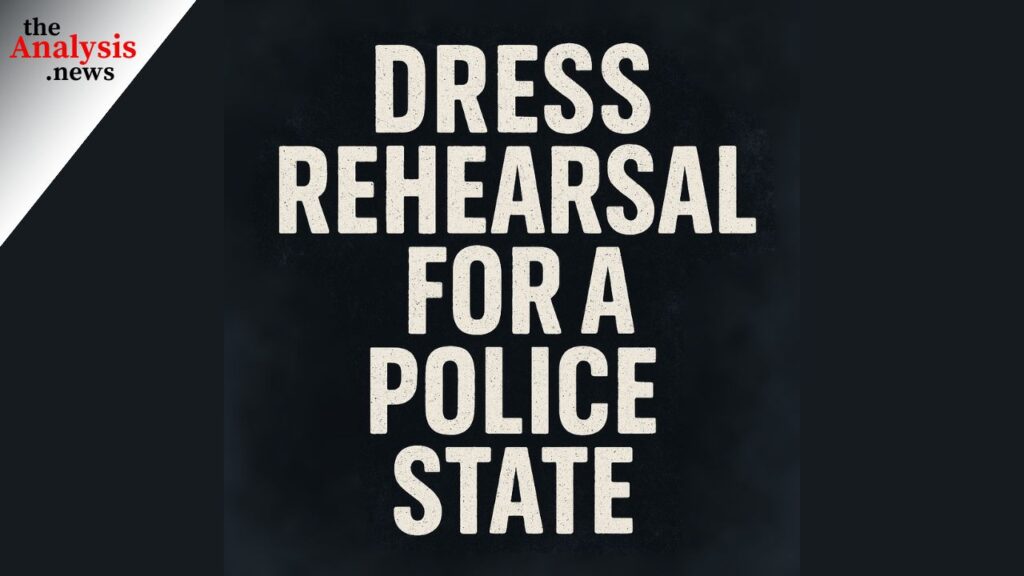

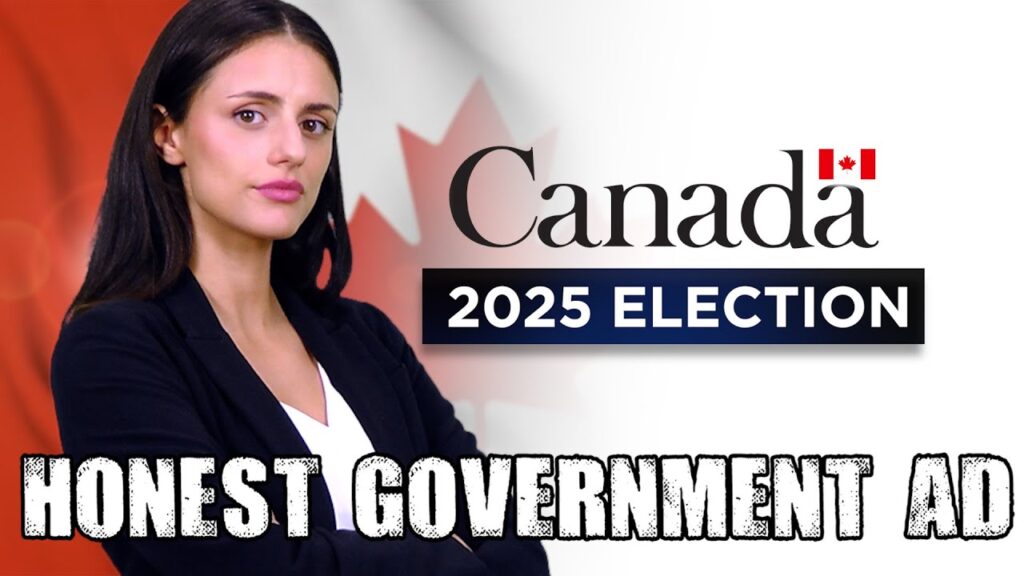

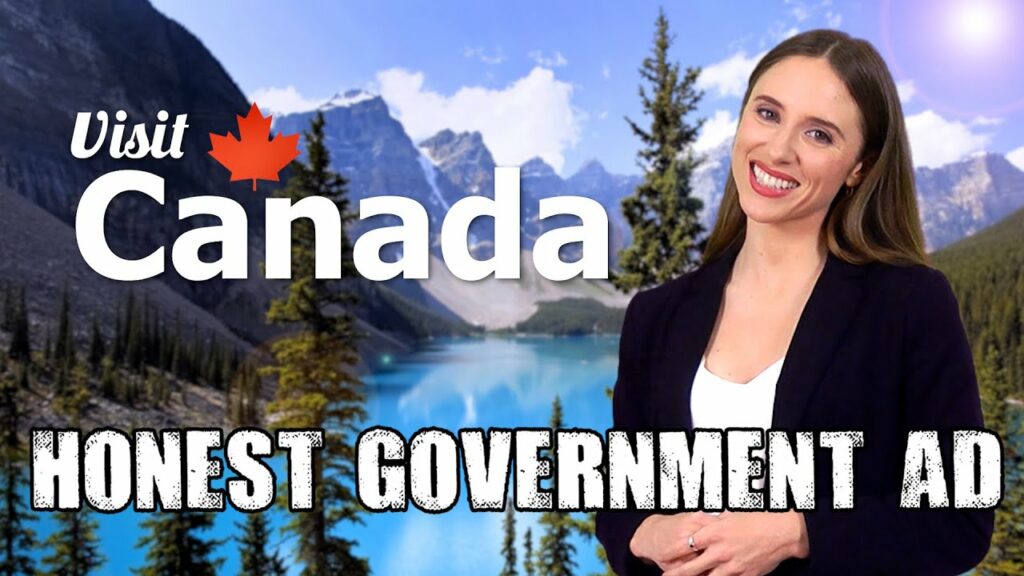


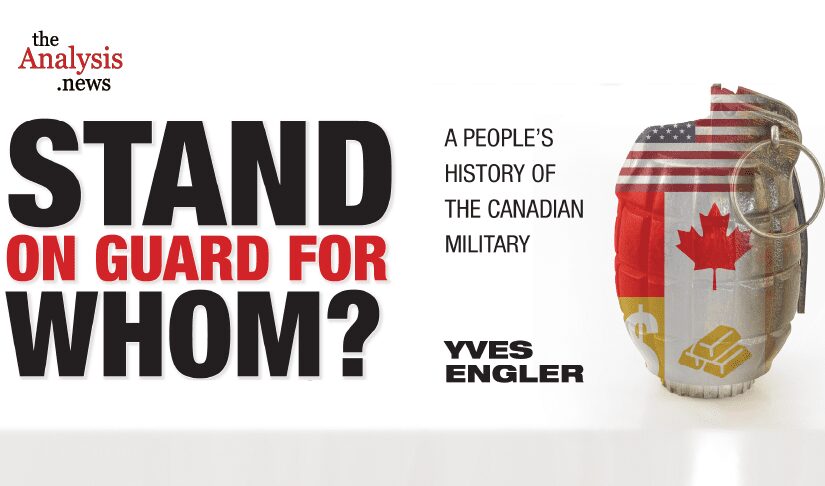



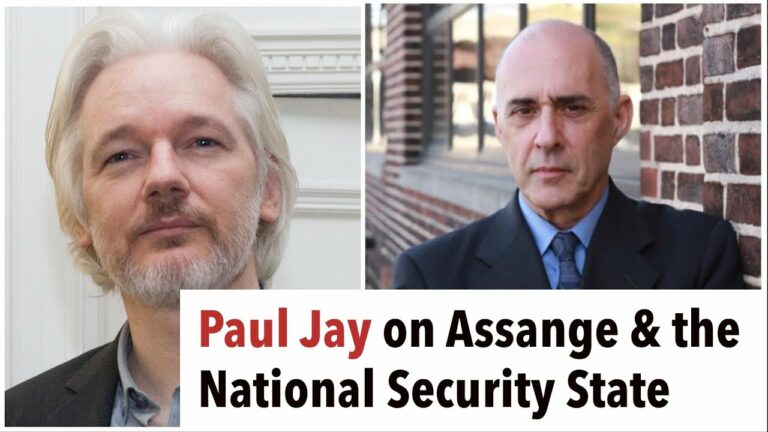
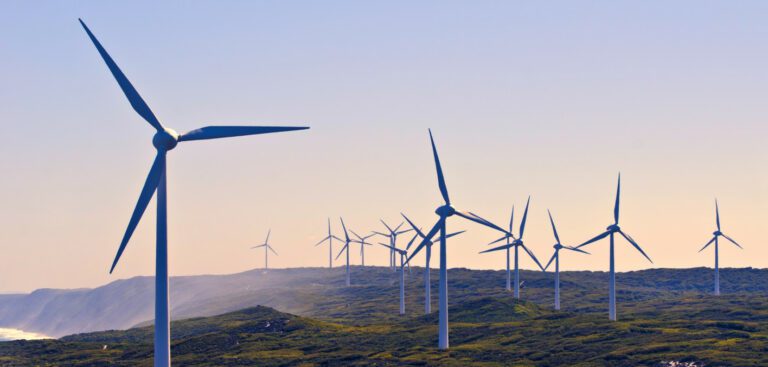
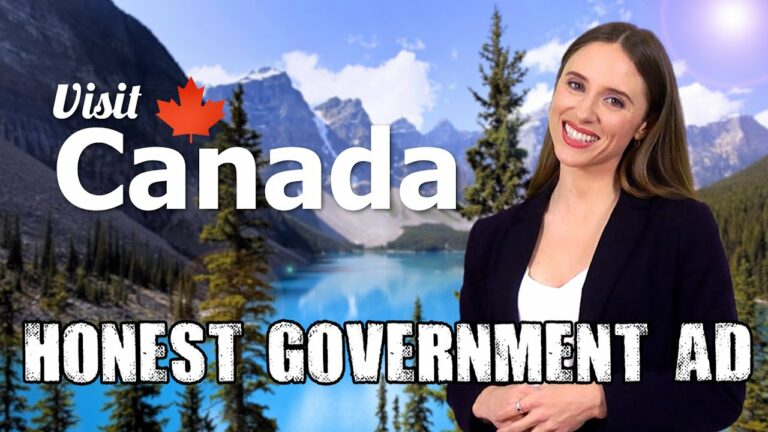
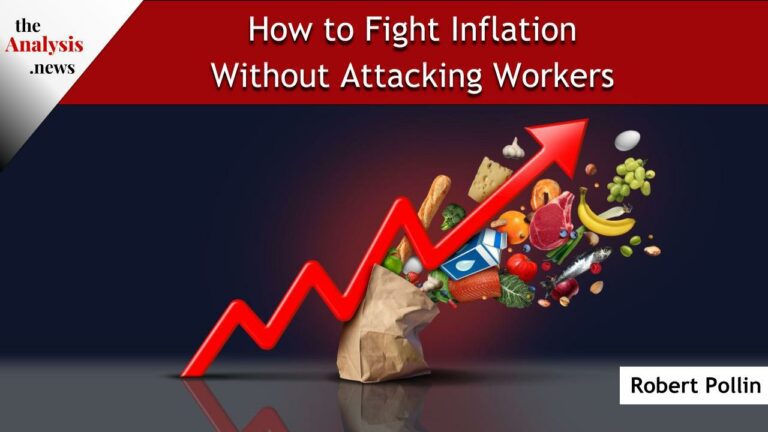
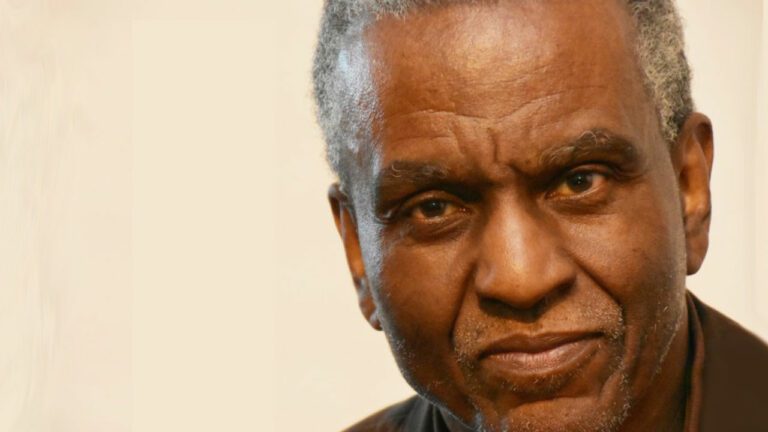
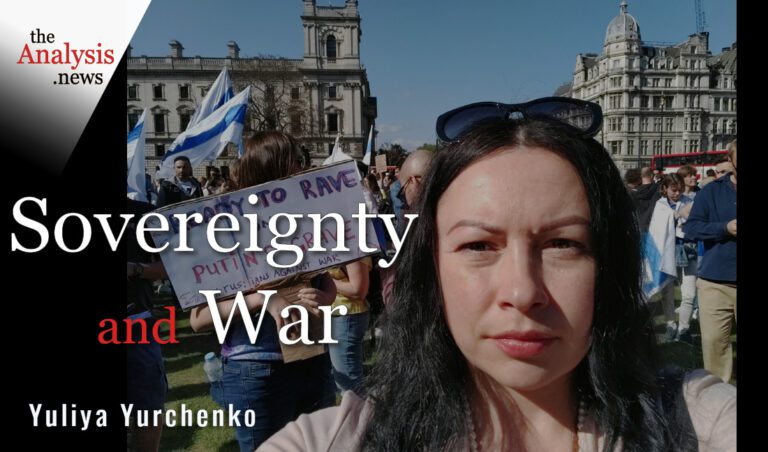
Exactly, Geodelite! And for anyone who doubts it, they have to read “JFK and the Unspeakable” by James W. Douglass! This is widely regarded by scholars as the most comprehensive book on WHY he was assassinated, and who the entities were who committed the crime and covered it up by the sue fo “conspiracy theory,” ridicule. Time to turn those tables!
Dear Mr Olsen, You wrote, ” … and to anyone who doubts it….” I take “it” to be the assertion of such scholars as Oliver Stone, which I do not accept, in support of JFK’s determination to end the Vietnam War. Noam Chomsky, has stated that he believes JFK’s memo was conditional on Ho Chi Minh’s willingness to meet US terms and finds no evidence otherwise. Though I am persuaded that JFK was assassinated by persons with political motives or underworld motives, I cannot regard the late President as a man of peace, not the President who sent the USAF to napalm Vietnamese peasants to end their support for the Viet Minh in the countryside!
Thanks for your reply. Goedelite
The “he” in my submitted comment is JFK. I apologize for my grammar.
And some notable commentators, Oliver Stone for example, tell us what a man of peace he was, that he was killed because he refused to invade Cuba, because he withdrew US missiles from Turkey, because he wanted to withdraw from Vietnam!